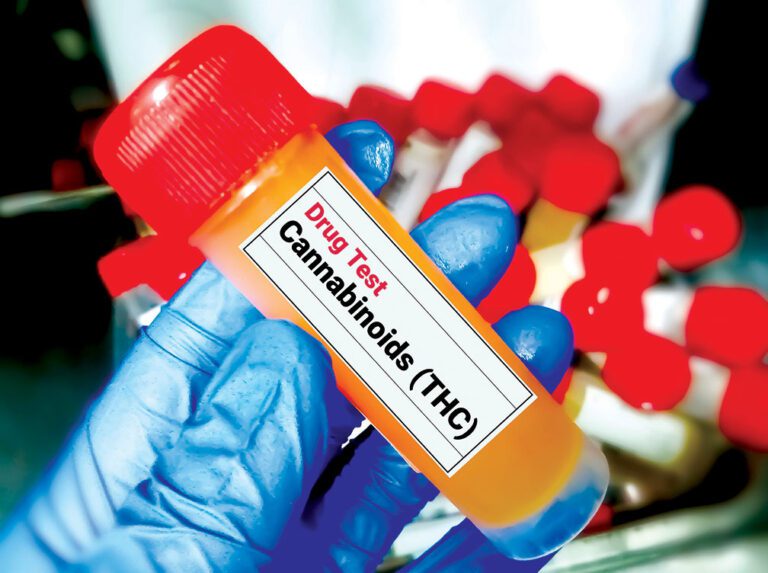Imagine the development of a test that could determine whether you drank a beer at that barbecue last weekend. Now imagine that you reported to work the following Monday — or even the Monday after that — and your employment was terminated because a drug test showed you drank that beer days ago.
Even worse, imagine that information being provided to any prospective employer you try to find work with, so you can’t find another job. Now, add to that scenario that your former employer is complaining about not being able to find good employees to hire.
According to a June 2023 study released by the American Transportation Research Institute (ATRI), this scenario is very real in the trucking industry — only the substance detected isn’t alcohol; it’s marijuana.
In its “Impacts of Marijuana Legalization on the Trucking Industry,” ATRI found that, over a 10-year period, 71.1% of positive pre-employment drug screens were for marijuana use. The study concluded that “past use of marijuana — which may have been up to 30 days prior to the test — is filtering out a significant number of potential truck drivers from the industry. There is the potential that these drivers had last used marijuana prior to even deciding to become a truck driver.”
The study also found that, during the first three years of the Drug & Alcohol Clearinghouse, only 4.5% of drivers who tested positive for controlled substances had completed the return-to-duty process and follow-up testing.
Those numbers come directly from the Drug & Alcohol Clearinghouse website. According to this data, 166,296 drivers had at least one violation; of these, 101,512 tested positive for marijuana metabolite. Of those, nearly 97,000 (95.5%) did not complete the return-to-work process. The majority of these drivers already possessed CDLs. If they are working now, it’s in another industry.
To be sure, no one is advocating for drivers to be able to toke up while piloting their 18-wheeler down the Interstate or during their 30-minute break. However, lately more people are wondering if marijuana use should be treated in the same way society permits alcohol use. Few professions prohibit alcohol use entirely. Consumption is allowed, and may even be encouraged, in the right setting. Operating a vehicle while under the influence is illegal virtually everywhere — as it should be.
In the case of alcohol, however, it’s possible to measure impairment. While people can react differently after consuming the substance, there are accepted standards. Blood-alcohol content is used in nearly every jurisdiction, with those found to be over the set limit facing the consequences of impairment.
Current marijuana testing doesn’t measure impairment. It can only indicate past use. A person who used marijuana a month ago, while not operating any vehicle, can come up positive under current tests. Some states, like Colorado, use blood tests to determine the amount of tetrahydrocannabinol (THC) in the system, but because people can react very differently to the same concentration of THC, proving “impairment” can be difficult.
The ATRI study referred to two separate studies that attempted to link the concentration of THC in the bloodstream with level of impairment. The results were that people with smaller amounts of THC in the blood were found to be impaired, while others with high amounts of were not impaired.
Clearly, more research is needed.
The ATRI study also showed that 41.4% of drivers live in states where recreational use of marijuana is legal. In other states, marijuana or its derivatives are legal for medicinal use. Since the substance is not approved by the FDA for medical use, it cannot legally be prescribed as a drug. Those states that allow medicinal use typically require doctor “recommendations” or “certifications” instead. Other states where marijuana use is still illegal have decriminalized its possession in small amounts.
Another popular product is cannabidiol, commonly called CBD. This product can, but doesn’t always, contain THC, the psychoactive ingredient in marijuana. There are no government-mandated standards for the product, so the product can vary in strength and THC content. CBD is legal to purchase in all 50 states, with some restrictions.
As laws prohibiting the sale and use of marijuana are removed across the country, the question arises: How long will it be before the federal government revises its own regulations?
Currently, marijuana is listed as a Schedule 1 illegal substance. Attempts to sue employers under the ADA by those using marijuana for medicinal purposes have been rebuffed by the courts; the drug’s listing as a Schedule 1 substance protects employers from such lawsuits. If marijuana was to be reclassified to a different schedule, those employers might then be open to ADA and other lawsuits and complaints.
The ATRI study also contained survey information from carriers and drivers. When asked if changes in current federal drug testing policy were needed, 62% of carriers said yes. Of those, 47% said that a sobriety/impairment test for use of the drug is needed. A majority — 65.4% — of respondents said they preferred that the trucking industry require testing that measures marijuana impairment rather than the current model.
However, such a test doesn’t exist.
Impaired Science Inc. offers a phone app that it claims can measure a user’s level of cognitive and motor impairment. Using a series of questions and required actions — such as following a moving dot with a finger — the app detects impairment by the user. It can’t, however, determine the reason for impairment. The driver could have a medical condition that causes impairment, or the “impairment” could even be fatigue. While an argument can be made that impairment for any reason should be detected and the driver shut down, the testing can’t be used to prove marijuana use.
In its summary, ATRI called for more research on the development of testing that measures marijuana impairment. Until such a test is developed, current testing requirements aren’t likely to be changed, and positive tests for marijuana use will continue to be cause for disqualification from safety-sensitive functions.
Change on the federal level may be years away, but at least the discussion has begun.
To request a PDF of the full study from ATRI, click here.
Cliff Abbott is an experienced commercial vehicle driver and owner-operator who still holds a CDL in his home state of Alabama. In nearly 40 years in trucking, he’s been an instructor and trainer and has managed safety and recruiting operations for several carriers. Having never lost his love of the road, Cliff has written a book and hundreds of songs and has been writing for The Trucker for more than a decade.











